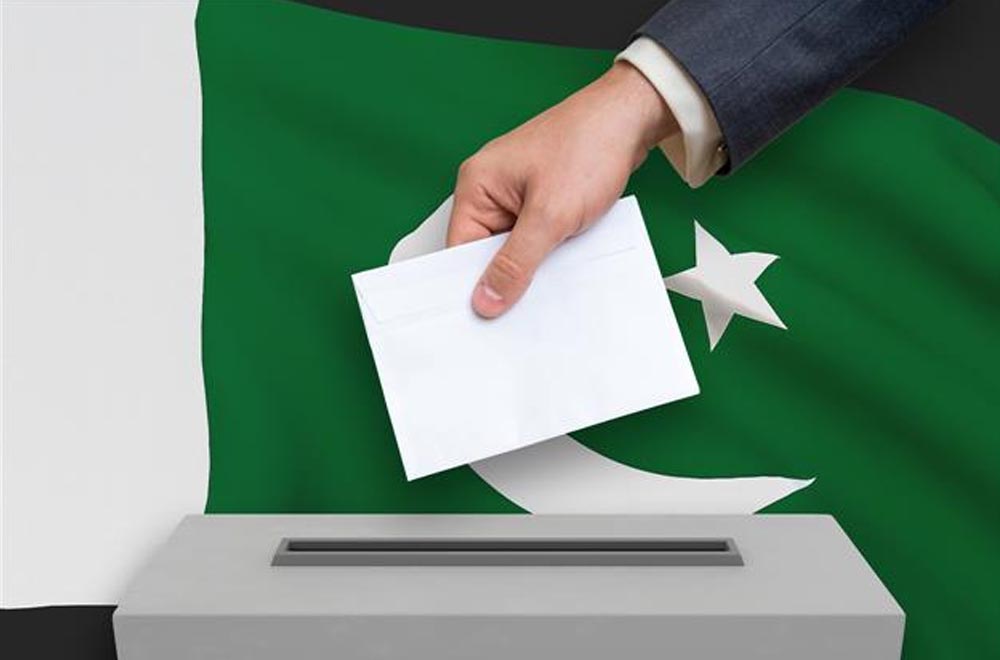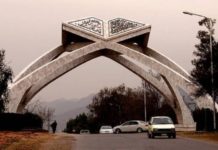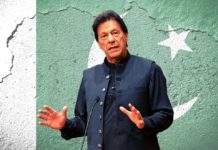On Feb 8 many millions stayed home, convinced that the national elections were rigged. They cannot be blamed because the signs were clear and obvious. But in 2018, when the boot was on the other foot, wasn’t that just as apparent? And how fair were elections before that? Rigging elections is a fact of life, one that will endure until Pakistan matures politically.
Still, the hope that things can change made me head towards the polling station of my area, NA-46 of Islamabad. There I was confronted by choices. Some candidates had party affiliations — PML-N, PPP, ANP, JUI-F, JI, TLP, etc. They were outnumbered by independents. One was officially backed by PTI. Who should I vote for?
Wrong question! Instead it is proper to ask: what should one vote for? Which actions can save a ship sailing head-on into the rocks? TV evening shows are uniformly venal, peddling only illusions and providing no answers. Let’s instead look at the challenges up ahead. I list below three of the most urgent and frightening:
Challenge #1: Control the ferocious rate at which we reproduce. Every seven seconds brings a new Pakistani baby into the world. Every 18 months brings more new mouths to feed than in all of Israel. If Pakistan’s borders were infinitely expandable, and if it had limitless resources, that might not be a problem. Else, we face a fate as grim as Fibonacci’s endlessly breeding rabbits, multiplying uncontrollably until collapse happens.
Even pseudo-elections could have done some good had Pakistan’s real issues been addressed.
Misery is not in some far-off future, it already stares us in the face. Depending on whose census data you believe, between 42 to 46 per cent of Pakistani children are physically stunted, a figure higher than in all neighbouring countries except Afghanistan. Which of us does not encounter impoverished children running after cars, begging to wash their windows? Or toddlers, barely able to walk, scrounging for scraps of food in garbage dumps?
Multiple governments have failed to make contraceptives widely available because family planning is believed by most people to be sinful. According to a survey, even couples who practise it think so. One should certainly not expect support from religious parties such as JUI-F, TLP, or Jamaat-i-Islami (JI) who help promote this mindset.
JI’s founder, Maulana Abul Ala Maududi, authored a powerful denunciation Islam Aur Zabt-i-viladat wherein he equated birth control with Westernisation, obscenity, and a conspiracy to prevent the inevitable rise of Islam. Still, one is relieved that unlike earlier, JI’s present election manifesto no longer emphasises anti-birth control.
Still important, but less well known than the religious opposition, are some local politicians who advocate increasing family size yet further. Behind this madness is a simple calculation: more people in their constituency means more development grants are dished out to them. Hence they eye still larger spoils. That’s why workers engaged in gathering 2023 census data were pressured by influential locals to include fictitious family members for practically every household.
Challenge #2: Create employment in an extremely difficult situation.Before us stands an ocean of unemployed youth, barely literate and hopelessly inarticulate but with high expectations. The vast majority have emerged from schools following Pakistan’s national curriculum. Heavy on national and religious content, and light on reasoning skills, it has enfeebled minds and reduced reasoning capacities.
Let us not be fooled that millions went on to acquire college and university degrees. Sadly, only a minority of those with high degrees can write a proper paragraph or express a thought coherently in any language. The luckier ones become Careem captains and pizza delivery boys.
It’s not their fault. Apart from a handful of elite universities, in classrooms students learn little other than techniques of blind memorisation and multiple ways to cheat. Most vice chancellors and professors — including some nationally celebrated ones — are duffers who entered a crooked system through crooked ways. Few have read a proper book in their lives or can even read one.
Desperate and skill-less, whether legally or illegally, Pakistan’s youth wants to flee the country. Conned by clever local agents, like cattle they are herded onto creaky boats for low-paying jobs anywhere in the world. Some don’t make it. The estimated 300-400 Pakistanis aboard the ill-fated Adrianna tragically found their final resting place under the Mediterranean.
And what do our political parties — particularly PML-N and PTI — recommend as the solution? Hold your breath! Their election manifestos promise yet more universities and colleges, one per every neighbourhood. This crazy expansion, started in 2002 by the Higher Education Commission under Dr Atta-ur-Rahman, is like throwing petrol to quench a raging fire.
Challenge #3: Accept that separatism comes from disenfranchisement, that this is largely of Pakistan’s own making, and so inimical foreign powers have a chance to play havoc. Let’s recall that the only genuine election in Pakistan’s entire history, preceded by 11 years of martial law, was in 1970. This firmly established Sheikh Mujibur Rahman as Pakistan’s most popular leader. But as subsequent developments proved, West Pakistan would not yield to the more populous East Pakistan. Democracy in a united Pakistan was never possible.
Baloch nationalists have drawn parallels with 1971 for decades but the security establishment’s only response has been to make dissidents disappear. Islamabad’s heartless reaction to the recent Baloch long march has solidified the belief among many that elections are irrelevant and, whichever party comes to power, extrajudicial killings and forced abductions will continue unabated.
I looked at the ballot paper with about 20 symbols awaiting my stamp. It was time to decide. Had any candidate, or their party leader, spoken or written anything remotely connected to Pakistan’s true problems? Else, was any individual known for community service in the NA-46 constituency?
Had the answer been a ‘yes’, my vote would have been for him or her. But sadly, for this there was not even a shred of positive evidence. The option of ‘none of the above” being absent, with a heavy heart I stamped all the options and so deliberately destroyed my ballot. Still, one must be optimistic and hope that the next time around things will be different.









